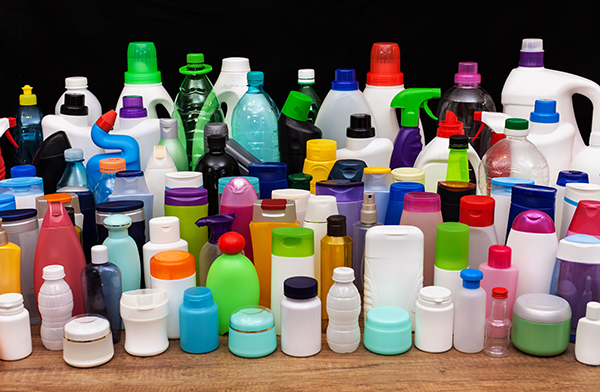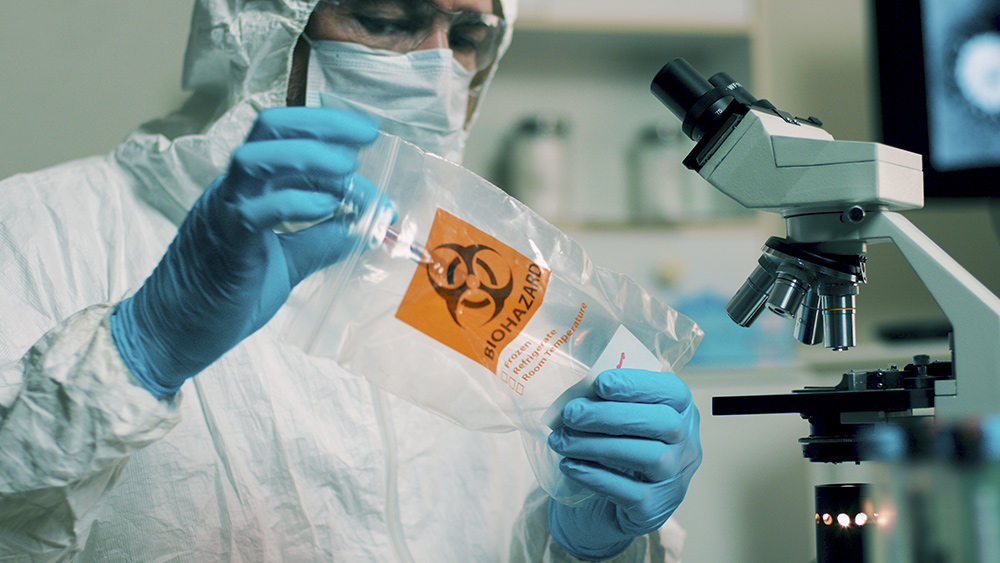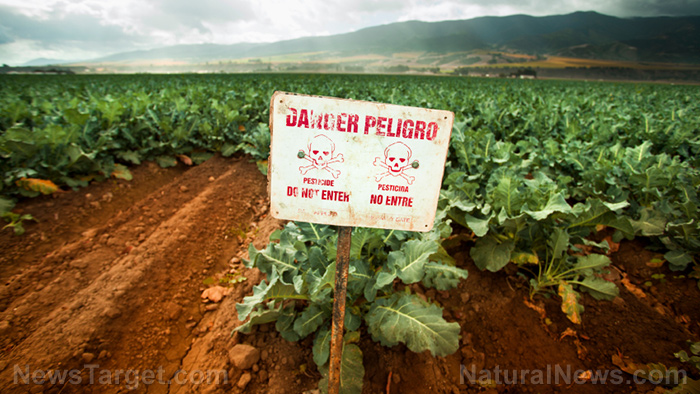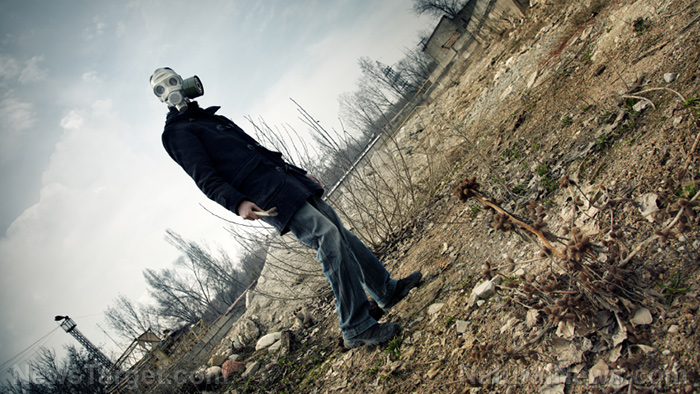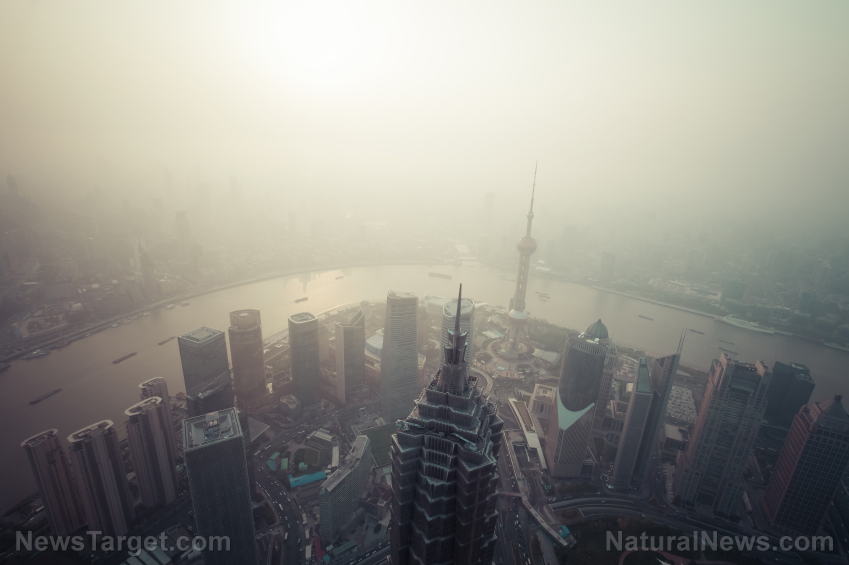Hungary’s honeybee collapse and the global honey scramble: A crisis over pollution, policy and profits
04/29/2025 / By Willow Tohi

- Hungary’s honeybee colonies have plummeted by 50% in a year due to harsh frosts, pesticides and disease, with environmental changes damaging critical acacia forests needed for pollination.
- Cheap honey imports from Ukraine and China undercut local beekeepers by up to 80%, threatening their livelihoods with unsustainable pricing and adulterated products flooding markets.
- Pesticides (like neonicotinoids) and parasites (e.g., varroa mites) contribute to worldwide bee declines, exemplified by Germany’s pesticide bans following mass die-offs.
- Adulterated honey — often diluted with sugar syrups — dominates global markets, while EU policies favor importers over local producers, sparking protests in Hungary.
- Advocates demand stricter labeling, organic beekeeping practices and systemic reforms to protect pollinators, emphasizing the broader threat to food security and ecosystems.
In Hungary, a once-thriving honeybee population has been decimated, with numbers halved in just one year, while domestic beekeepers face economic ruin as cheap, often subpar, honey floods the market from Ukraine and China. A deadly combination of frosts, pesticides and collapsing demand has left Hungarian beekeepers on the brink, mirroring a global struggle to protect pollinators and ensure the integrity of food systems.
The perfect storm: Disease, winter, frost and imports
Since winter 2023, Hungary’s beekeepers have witnessed a catastrophic collapse, losing 50% of their colonies. A bitter cold snap in April 2024 further crippled recovery by damaging two-thirds of the acacia forests critical for spring pollination. “The acacia’s buds turned black, and the expected blooms never came,” stated Péter Bross, president of the National Hungarian Beekeeping Association, describing hillsides stripped of their floral lifeline.
Compounding these ecological blows, Hungarian beekeepers now compete with honey from Ukraine and China, where imports undercut domestic prices by as much as 80%. When the European Union’s second-largest honey producer lifts honey onto the scales, the scales of economic justice crack. “Honey can always be sold, but unfortunately, more often at a price that doesn’t cover costs,” Bross lamented.
Environmental threats compounding the crisis
The bee decline isn’t confined to Hungary. Globally, bee populations have seen alarming losses attributed to pesticides like neonicotinoids — banned in parts of the EU — and the parasitic varroa mite. Germany’s recent suspension of certain pesticides in response to massive bee die-offs underscores a broader environmental reckoning. “This is a crisis for biodiversity and agriculture,” warned Manfred Hederer of Germany’s beekeepers’ association, echoing the Hungarian experience.
Climate events further disrupt delicate ecosystems. Acacia trees, a cornerstone of Hungarian beekeeping, are exquisitely sensitive to temperature shifts. “Two nights of sub-zero April temperatures destroyed decades of growth,” noted Bross. Meanwhile, prolonged drought exacerbates stress on woody plants like linden and chestnut, jeopardizing winter forage.
Global market pressures and the “fake honey” dilemma
The crisis is as much about economics as ecology. China, the world’s largest honey producer, floods global markets with products sometimes cut with sugar syrups. A 2023 study by Beijing’s Institute of Apicultural Research admitted practices of “sugar adulteration for higher profits.” In the U.K., lab tests on supermarket honeys revealed 89% of samples showed signs of tampering.
Hungarian beekeepers protest against EU policies that permit such imports. “Ukrainian honey enters at rock-bottom prices, squeezing local incomes,” said beekeeper Krisztian Kisjuhasz, who joined February 2024 protests near Ukraine’s border. Prime Minister Viktor Orbán’s government, however, argues repealing the Ukrainian import ban benefits traders reliant on foreign honey to fulfill EU contracts.
Advocacy and proposed solutions: A fight for transparency
The U.K.’s Honey Authenticity Network UK is pushing for stricter labeling to combat deceptive blends. Lynne Ingram argues, “Consumers deserve to know if their honey is adulterated.” While the EU mulls labeling laws, Britain’s departure from EU regulations complicates enforcement.
Solutions are budding beyond policy. Natural health advocates champion organic beekeeping, which avoids pesticides and fosters ecosystem resilience. Susan Thixton of the Truth About Pet Food warns pet owners to avoid cheap, grain-based foods — advice extending to human food supply chains.
Uncertain future
Hungary’s bee collapse serves as an alarm bell for global food security. From Polish apiaries to California’s almond orchards, pollinator decline threatens ecosystems and economies alike. The fight isn’t just about saving bees but also about dismantling policies favoring industrial profit over ecological balance. As beekeeper Kisjuhasz put it, “Without action, farming honey could become a hobby, not a livelihood.” Without systemic change, the honey exodus threatens to turn every corner of the planet into a land of vanishing blooms — and dire consequences for life itself.
Sources for this article include:
Submit a correction >>
Tagged Under:
agriculture, bees, climate, Collapse, Dangerous, Ecology, economic loss, environment, extinction, food collapse, food rationing, food supply, globalism, honey, honeybees, organic farming, risk, toxic chemicals, toxins
This article may contain statements that reflect the opinion of the author
RECENT NEWS & ARTICLES
COPYRIGHT © 2017 POISON NEWS

